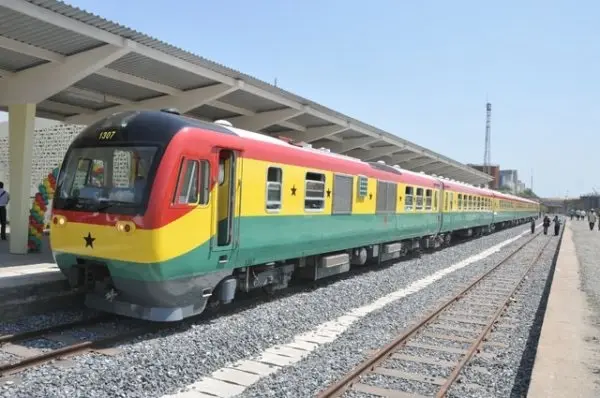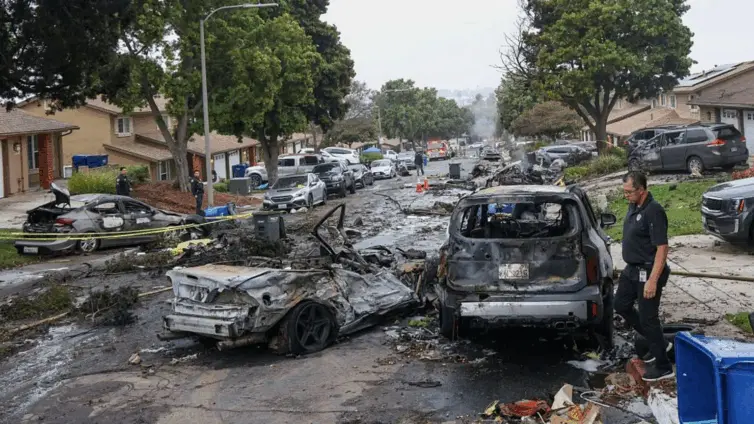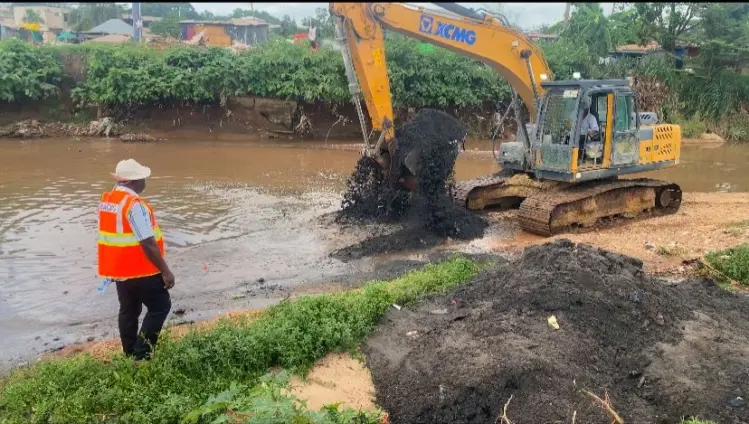Tema Railway Station stood silent, a metal serpent slumbering under the Ghanaian sun. Around it, the echoes of a nationwide strike by the Railway Workers Union reverberated, a stark reminder of the deep crisis gripping the Ghana Railway System. For four days, the union had brought the nation’s rail network to a standstill, demanding unpaid salaries and highlighting the alarming state of decay that has come to define Ghana’s once-proud railway sector. According to railway workers, abandonment, under-funding, and neglect have brought a nation’s rail dreams to a grinding halt, an issue now under investigation.
The crisis extends beyond mere labor disputes; it speaks to fundamental issues of infrastructure, worker welfare, and the very future of rail transport in Ghana. With salaries going unpaid, infrastructure crumbling, and workers desperately seeking solutions, the spotlight has turned to potential measures such as railway privatization, a prospect fraught with both promise and peril. The strike and decay of the Ghana Railway System highlight how abandonment, under-funding, and neglect can bring a nation’s rail dreams to a grinding halt.
“Until our arrears are paid in full, that train at Tema won’t move,” declared Franklin Cobbinah, Branch Secretary of the Accra Railway Workers Union, encapsulating the unwavering resolve of the striking workers. Their demand is simple: to receive the wages they are owed, wages that represent not just income, but sustenance, security, and the very ability to provide for their families.
The impact of the strike stretches far beyond the tracks. The Railway Workers Union strike has shed light on the personal toll of the crisis. For months, many have struggled to make ends meet, their lives turned upside down by the lack of income. Some are losing their homes, others can’t afford to send their children to school. Stories of hardship abound, painting a bleak picture of the human cost of neglect. “As a result of not being paid, my wife left me. I’m now alone, taking care of the children. It hasn’t been easy for the past seven months,” one worker lamented, his voice heavy with despair. Another shared a similar burden: “My daughter completed SHS last year and passed her WASSCE, but she’s at home because I can’t afford her fees. This is not just about salary arrears anymore, it’s about broken futures.”
Beyond the immediate crisis of the strike lies a more insidious problem: the shocking state of disrepair at stations like Tema. The Tema Railway Station, once a vital hub of transportation, now stands as a stark symbol of neglect. Basic amenities are nonexistent. For two years, there has been no running water. Electricity has been cut off for four months. The station’s power plant, meant to provide a backup, has been inoperable for five years. Even the washrooms inside the only operational train are in deplorable condition.
Adding insult to injury, the storeroom where critical tools are kept lies unsecured, leaving them vulnerable to theft and further hindering any attempts at repair. “There’s no window, no lock. It’s exposed to thieves,” admitted the security guard, highlighting the blatant disregard for even the most basic security measures. The vulnerable conditions at Tema Railway Station are symbolic of the decay within the Ghana infrastructure.
Faced with such dire circumstances, many workers are now looking to railway privatization as a potential lifeline. “If we continue to leave it in the same hands, we’re headed for doom,” one worker warned, expressing a growing sentiment that only a radical change in management can save the railway from complete collapse.
The prospect of railway privatization is not without its complexities. Supporters argue that private investment could bring much-needed capital, expertise, and efficiency to the sector. A counterargument is that profit-driven motives could lead to neglect of unprofitable lines, job losses, and higher fares, potentially harming the very communities the railway is meant to serve. The potential benefits and drawbacks of railway privatization must be carefully considered.
The strike, the decrepit condition of Tema Railway Station, and the workers’ desperate plea for change paint a grim picture of the crisis engulfing the Ghana Railway System. The abandonment, under-funding, and neglect can bring a nation’s rail dreams to a grinding halt. The urgency to resolve these issues is paramount. Until then, the trains will remain stationary, a symbol of a nation’s stalled progress, waiting for the spark that will set them in motion once more.
Image Source: MYJOYONLINE




















